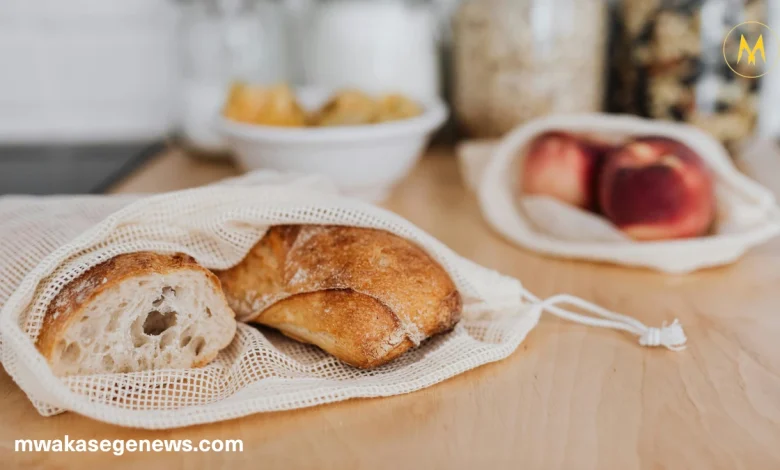
Hormonal imbalance and chronic inflammation are two common but overlooked health challenges. They contribute to fatigue, weight gain, mood swings, and even long-term illness. The good news? You can address both—naturally—without relying on pills. Certain foods have powerful properties that support hormonal balance and reduce inflammation in the body.
In this article, we’ll explore the best foods to help restore your internal harmony and reduce painful or disruptive symptoms. Let’s dive into healing from the inside out—with your kitchen as your first pharmacy.
1. Why Hormonal Balance and Inflammation Matter
Hormones regulate nearly every function in your body—from sleep and metabolism to mood and fertility. When hormones are out of balance, everything feels off. At the same time, chronic inflammation can silently damage tissues, joints, and organs, leading to long-term diseases like arthritis, diabetes, and heart problems.
Balancing your hormones and calming inflammation improves energy, focus, digestion, and even your skin. And yes, food plays a major role in this process.
2. The Power of Whole, Natural Foods
Instead of reaching for supplements or medications, nature already provides what you need. Certain whole foods contain nutrients, antioxidants, and healthy fats that help your body heal and regulate itself. They don’t just treat symptoms—they address root causes.
Let’s look at the top foods that work wonders for both hormone balance and inflammation.
3. Top Natural Foods to Balance Hormones and Reduce Inflammation
1. Leafy Greens (Spinach, Kale, Swiss Chard)
Rich in magnesium, fiber, and antioxidants, leafy greens help reduce cortisol (the stress hormone) and ease inflammation. They also support liver detoxification, which is essential for hormone balance.
2. Avocados
You might also like: Top 10 Superfoods That Fight Inflammation and Support Gut Health
Full of healthy fats and potassium, avocados help your adrenal glands produce hormones properly. They also reduce bloating and calm inflammatory responses.
3. Berries (Blueberries, Strawberries, Raspberries)
These are loaded with antioxidants that fight oxidative stress, a key trigger of inflammation. Their natural sweetness also makes them a great alternative to processed sugar, which disrupts hormones.
4. Fatty Fish (Salmon, Sardines, Mackerel)
Omega-3 fatty acids in these fish lower inflammation and support brain and hormonal health. They also help regulate menstrual cycles and reduce PMS symptoms.
5. Nuts and Seeds (Flaxseeds, Walnuts, Almonds)
Flaxseeds contain lignans, which help regulate estrogen. Walnuts and almonds provide zinc and selenium, which support thyroid function and reduce systemic inflammation.
6. Turmeric
Curcumin, the active compound in turmeric, is a potent anti-inflammatory. When combined with black pepper, it enhances absorption and helps the body fight inflammation at the cellular level.
7. Olive Oil
Extra virgin olive oil is rich in monounsaturated fats and antioxidants. It supports hormone production and reduces inflammation linked to heart and brain diseases.
8. Fermented Foods (Yogurt, Kimchi, Sauerkraut)
A healthy gut is key to hormonal balance. Fermented foods introduce good bacteria that help regulate estrogen and cortisol levels while calming inflammation.
4. Foods to Avoid
Just as some foods help balance hormones, others can make things worse. Avoid:
- Refined sugar and white flour
- Highly processed foods
- Vegetable oils (canola, soybean, corn)
- Alcohol in excess
- Artificial sweeteners
These foods spike insulin, disrupt estrogen, and increase inflammation in the body.
5. Lifestyle Tips to Boost Food Benefits
- Hydrate: Drink enough water to flush out toxins.
- Sleep well: Quality sleep keeps cortisol levels stable.
- Exercise regularly: Movement helps balance insulin and improve circulation.
- Limit stress: Chronic stress overwhelms hormones. Try breathing exercises or journaling.
Final Thoughts
Balancing your hormones and reducing inflammation doesn’t require a medicine cabinet—it starts with your plate. By adding nutrient-dense, natural foods like leafy greens, berries, fatty fish, and fermented options to your daily meals, you support your body in healing and thriving. Give your hormones the love they deserve—and watch how your energy, mood, and health transform.
FAQs
Yes, for many people, diet plays a crucial role in regulating hormones naturally. It may not replace medical care, but it’s a powerful first step.
Some people notice changes within a few weeks. Results vary, depending on your lifestyle and condition.
Most of them are, but always consult your doctor before making significant dietary changes during pregnancy or lactation.
No, not immediately. Talk to your healthcare provider about safely adjusting supplements based on your improved diet.
Not necessarily. Focus on variety and consistency—include several of them throughout the week for best results.
You might also like: 7 Anti-Inflammatory Drinks That Cleanse Your Body and Strengthen Immunity




